The past four months have been about moving to a different city and adapting to a new type of life of increased sobriety, mindful connection to my environment, and a gradual reduction of my tendency toward self-conscious isolation. This habit has been a source of consistent inspiration amidst massive change. Some great movies discussed below.
Shorts:
Asparagus (1979)
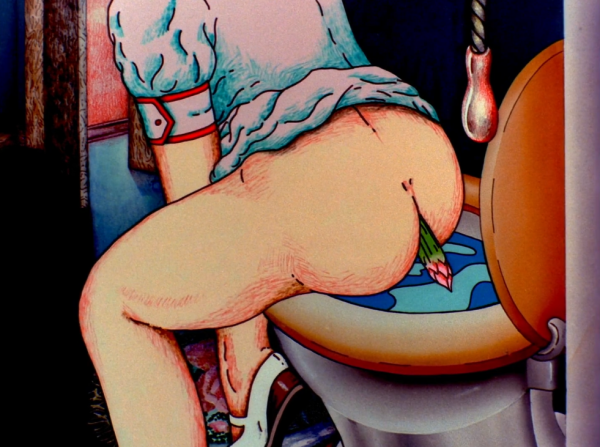
Constantly surprising, psychedelic animated masterpiece. Suzan Pitt reflects here on her own artistic project, the no-face behind the mask one wears, the monism of reality (here, all asparagus). It didn't really connect with me on a personal level, at least not on this watch, but it's an amazing piece of work.
Gash / Lace (2014)
Decussation Chamber (2015)
Magnetic Resonance (2015)
I watched a ton of Malic Amalya's shorts, and these are my three favourites. They, and many more of varied styles, can be viewed for free on his vimeo, and through his website. He's a totally brilliant filmmaker, and his work is precious to me. I feel a kinship with it.

Gash / Lace is the product of a series of workshops Amalya led, a type of organized queer vandalism of vintage used 16mm film stock. The result is a scintillating animated short.


Decussation Chamber and Magnetic Resonance are really complex shorts which warrant closer readings than I'm prepared to give right now. Playing amidst decay, the constant death and constant birthing of all things. Seriously recommend giving them a look and seeing what you make of them.
Features:
Bacurau (2019)
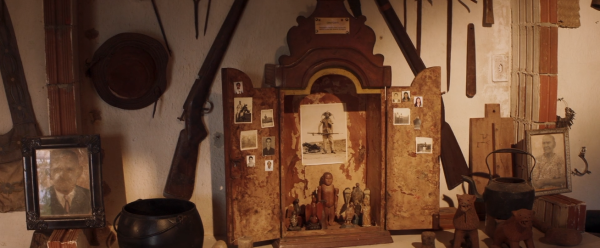
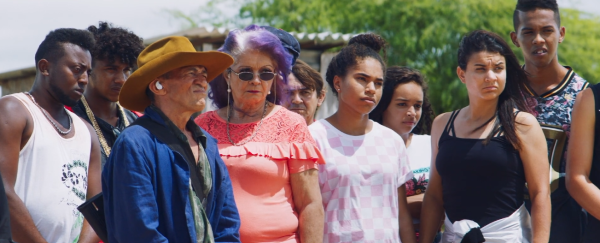
Incorporates many styles of "genre" filmmaking (western, action, slasher, sci-fi) to tell a powerful and distinctive story about the kind of community it takes to fight back against the depraved forces of USamerican empire. A shocking, rich movie with a huge, diverse cast of characters and tons of food for thought. Sugar-coats nothing, and presents a challenging vision of hope, wisdom, and strength against the most vile abuses.
Terminal USA (1993)

My first exposure to Jon Moritsugu, and it made me thirsty for more. Extremely funny, shocking, queer punk satire.
Chez Jolie Coiffure (2018)
The Two Faces of a Bamiléké Woman (2018)
Delphine's Prayers (2021)
These three documentaries by Rosine Mfetgo Mbakam can each be viewed alone, but I watched them all in quick succession, and I think they're even more interesting when taken as a whole. Chez Jolie Coiffure and Delphine's Prayers are both filmed in Belgium, with their subjects fellow emigrées from Cameroon and friends of Mbakam's, while The Two Faces of a Bamiléké Woman was filmed on a trip to Mbakam's hometown, focusing on her mother and her mother's friends. All three films pay special attention to the work that their subjects do.
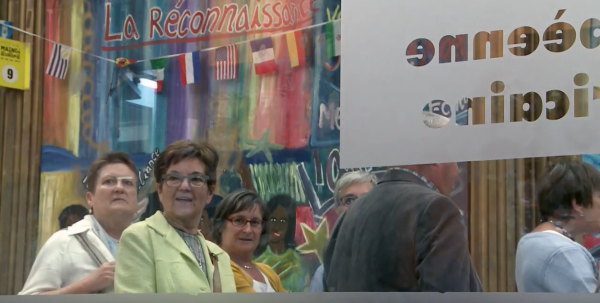
Chez Jolie Coiffure is filmed entirely in the hair salon owned and operated by the film's main subject, Sabine. This salon is in Matongé, the African district in Brussels, and Mbakam focuses on interviewing Cameroonian clients and workers of the salon. They discuss in detail the perilous and exploitative path which they had to take to make their migration. We spend a good amount of time as flies-on-the-wall, watching the women work and listening to everyday conversations about the constant threat of police and the struggle to keep your head above water. But a white audience member is not allowed to escape into a comfortable, invisible voyeurism and eavesdropping. The film is continually interjected with real footage of crowds of white tourists walking slowly past the salon, rendering their judgements of the people inside. Sabine talks about them as they go past like this happens every day. A constant stream of white, contemptuous faces and dawdling gaits. I have to ask myself if my own posture is, as I view this film, the same as theirs. What can be done about that?

The Two Faces of a Bamiléké Woman is a reckoning between Mbakam and the reality of her mother's own humanity, the pain in the marriages of all of the women she knew growing up, the bullshit they put up with from their husbands, which they put on a good face to hide, but are not ignorant of. Work is shown to be the basis of their lives, as conversations about their lives take place over harvests and the processing and cooking of food. Mbakam's mother is a market woman, a distinctive form of feminized labour that puts her in the (very) petit bourgeoisie. Market women have a class interest in Africa which tends to be in significant opposition to the comprador or global bourgeoisie. She is also the member of a women's organization which manages finances in a semi-communal manner, which is a manner of organization referred to in Chez Jolie Coiffure, but given a bit clearer of a portrait here. I'd be interested to learn a lot more.
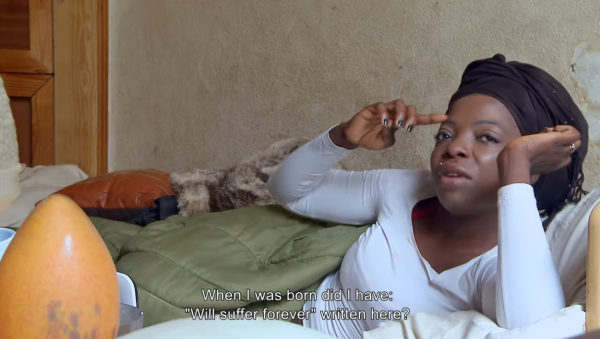
In Delphine's Prayers, Mbakam reflects on her own class position more directly. This film is more of a singular portrait than the other two, tightly focused on Mbakam's friend, Delphine, who tells the incredible and horrible story of her life, all from her bedroom in her (white, Belgian) husband's house. Delphine was born to a large, poor family in Cameroon, in a social situation where everyone was quick to turn against each other. Her childhood traumas, caused by rape, economic desperation, and the easy scapegoating of a teenage girl in times of grief, turn into lifelong sufferring-- continued retraumatization through survival sex work, marrying a man who doesn't respect her for the sake of some stability, but still being kept in desperation by having no financial independence to speak of, and further binding ties through the child they share and she loves. In a better world, Delphine could raise her child without having to put up with a loveless marriage, but she is living in a foreign country hostile to her existence while having no "home" commmunity either, because those ties have been so broken via constant traumatizing conditions. Amidst this, Delphine styles Mbakam's hair, and Mbakam thinks aloud (in voice-over) about how, if they had both stayed in Cameroon, she would only have looked down on Delphine for her lower class position, and how only by now sharing the subaltern position of Cameroonian immigrant do they have community together.
Microhabitat (2017)

Mi-so is a sweet, optimistic woman in her late-20s who works as a casualized housekeeper, struggling to get by when an inflation crisis hits and wipes out her meagre savings. She can't afford her rent anymore, tells her landlord as much, and then moves out. But nowhere else is any cheaper. So begins our tour through the economy of Seoul, through the eyes of Mi-so as she goes from one old friend to the next, each living in distinct economic niches, as she asks unobtrusively for help. The dramas of their lives are personal and character-driven, but the economic bases are inescapable, and laid out plainly. A woman in a high-stress, high-pay job uses her nurse's training to shoot up safely on her break. A friend who married rich lets Mi-so stay with her, but grows jealously defensive of her marriage. Another marriage fails for reasons unknown, which might not have been economic in the slightest, but it leaves the broken-hearted husband with the albatross of a highly-exploitative condominium contract around his neck, to deal with alone, compounding his problems and his shame to the point of rendering him unable to accept support of any kind, or even face his friends. I don't want to spoil the ending here, but the way it goes is totally in-line with what we're shown of the economy, and with Mi-so's character, her dignity, self-knowledge, and values, these strengths which her social conditions punish. (Note: the original version of this post included some incorrect information about this film, which I have since edited out).
This Is Not a Burial, It's a Resurrection (2019)

Haunting, mythic depiction of the global story of the modern era, the story of billions of people, land enclosure. Mary Twala Mhlongo, in her final role, plays Mantoa, an elderly widow in a small Lesotho village, a woman whose son has just died while working in a mine, and who now has no surviving family. Her only wish left in life is to be buried with her family in their ancestral soil. But a "local" politician has slated that land to be drowned by the construction of a hydroelectric dam, and for the villagers to relocate to a slum, to lives of bare starvation as unemployed landless poor. Mantoa refuses, and the strength of her conviction presents a heroic challenge. The photography, costuming, score and performances are just outstanding. This is a gorgeous piece of cinematic poetry and a worthy telling of this story.
Special Mentions:
Arrebato (1979)
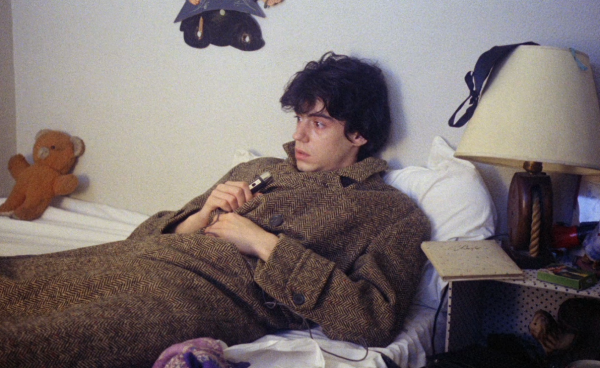
This was a tremendously inspiring movie for me. My viewing was interrupted several times by frantic periods of writing. Adored it on a technical level, and found Pedro fascinating.
Fresh Kill (1994)
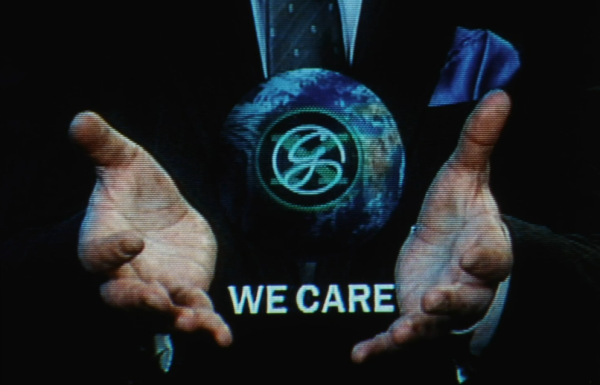
Queer lesbian eco-satire about the relevance of industrial waste, the imperialist logic that determines whose land it poisons, and the interconnection of all life which becomes catastrophically apparent at points of crisis.
Bring Down the Walls (2020)

House music and prison abolition as Black and brown queer cultural formations of radical significance.
Gerontophilia (2013)
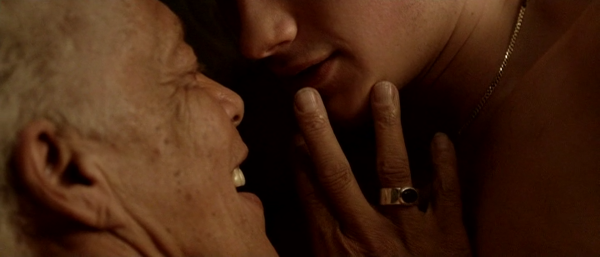
Tender unsentimental love story. A satire of over-eager radicals with good hearts but immature ways of relating to the people in their lives. Erotic in a cool-headed way. Avoids the traps of sensationalism or excessive self-censorship, instead showing this twink's sexuality as a plain fact of life.
The Bitter Tears of Petra von Kant (1972)
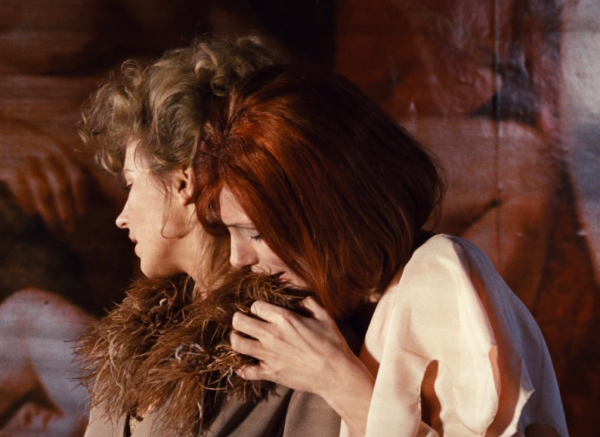
A closeted lesbian boudoir melodrama, where class conflict plays out in subtle, constant, interpersonal ways. The bourgeois antiheroine, her aristocratic friend she loathes, the young woman she tries to possess, and the devoted employee full to the brim with longing. There is no shortage of things to talk about here, from the incredible racism that only surfaces in the midst of a jealous argument, to the understated, unexpected ending, to the constant sound of Kant's assistant working at the typewriter, which Kant seems genuinely not to notice as she occupies herself with her psychodrama. A brilliant piece on very real queer relationship dynamics, while also providing a deep critique of bourgeois subjectivity in its refusal to observe reality.
Bamako (2006)
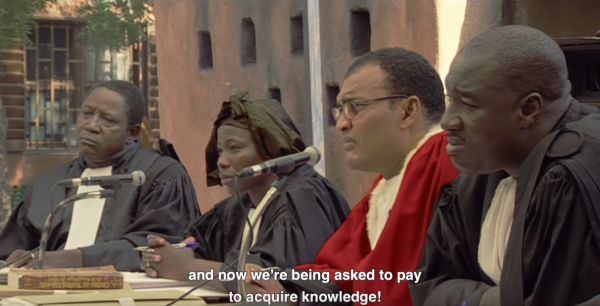
An allegorical docudrama of a fictional open-air trial in the titular Bamako, Mali. Slowly, the identities of the two sides are revealed. The defendants are the IMF, World Bank, and all other agents of foreign capital affixed to structural adjustment policies. The plaintiffs are the African people, broadly conceived. We see expert testimony, witness accounts, and impassioned cases which make the stakes crystal clear. We meet characters who participate, follow, and live adjacent to the trial. Around two-thirds into the movie, the attorney for the defense delivers a long speech filled with common arguments in support of financial imperialism. He's allowed to go on long enough so as to almost be convincing, to sound reasonable. It's surprising, because we've been primed by a portrait of the landscape that proves that the status quo he upholds is causing mass deprivation and despair, but we still aren't prepared to counter his every argument. What follows is the climax: an equally impassioned, equally reasonable-sounding, but more grounded, reality-based, and morally justified concluding argument by the attornies for the plaintiffs.
But many of the everyday people listening along on the radio have started to tire of the trial by now. Too much talk, lawyers being lawyers, their passion a performance for the theatre of the trial. In the end we don't see how the trial's official judge rules. It's implied that the most important judge will be the people, and the real trial will not be in court. The film itself is the trial it depicts. It might be interesting to start a conversation with, but it does not provide the tools needed for meaningful action. The moral imperative toward debt forgiveness is laid out clearly, and it might provoke some other interesting thoughts, but far, far more work is needed, and I think it knows.
Better Luck Tomorrow (2002)
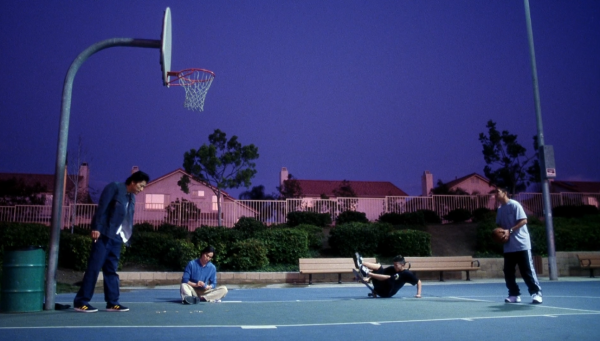
Justin Lin directs an early-2000s high school movie like no other. The characters and their dynamics are full of life, with Jason Tobin's performance as Virgil really standing out. I'd recommend going into it without doing any research. The movie earns its story as it goes.
Memories of Underdevelopment (1969)
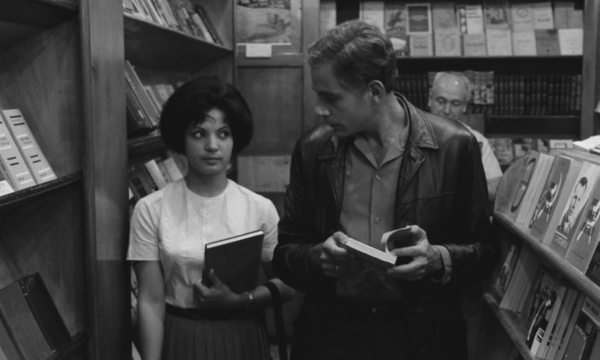
A misanthropic bourgeois recluse chooses to remain in revolutionary Cuba while his family and friends all flee, not because he is sympathetic to communist revolution, but because he is absorbed in a generalized passive loathing and his unconscious hopes to be annihilated, whether by revolutionaries or by USamerican missiles. This film importantly links his bourgeois nihilism to a hideous misogyny, the oppression of women demonstrated as part and parcel of the capitalist culture that needs to be overcome. Also contains an interesting almost-contemporaneous account of the Bay of Pigs invasion, and a picture of the revolutionary culture that existed in Cuba at the time of the production. Very difficult to watch, both for real images of dead human bodies, and for dramatized violence against women.
Going Forward...
These posts have the advantage of being simple to write, and let me keep up the practice of thinking critically about what I watch and finding ways to share those thoughts. However, I think that this format might not be terribly engaging, because it is unfocused. In the future, I might like to write more posts that curate films according to related and contrasting themes, proper comp-lit shit (along the lines of what I did here) rather than a list of recommendations with no more connective tissue other than the fact that I personally watched them in a given span of time. On the other hand, there is something I'm liking about the honesty of this. I'm admitting that these are just my favourite recent watches. There's something I find deceitful about the practice of curation, because it gives an impression that the curator is sufficiently familiar with a field to produce something objectively representative of whatever theme they curate around. The Ten Greatest Anti-Imperialist Films (Which I Happened to Watch and Determine to Be So)...
I'll keep up the experiment for one more four-month chunk, followed by a kind of year-end top ten and all film tier-list, and then probably something new for 2023. I still feel a need to do this sort of thing in one format or another. Maybe just a way to keep the gears turning, and a desire to better retain an idea of these films rather than let their memories escape me.